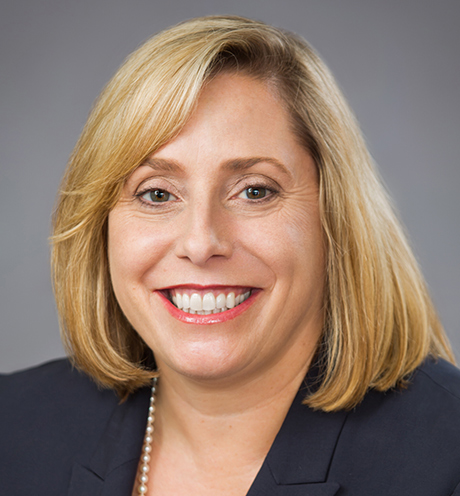
o answer this question, we have to look at what it means to provide Free Appropriate Public Education (FAPE) before COVID-19-related school closures and distance learning. Under the Individuals with Disabilities Education Act, students with disabilities are entitled to an educational program that is individualized to each specific child’s unique needs, and from which the child receives educational benefit.
FAPE means special education and related services are provided at public expense, under public supervision and direction and without charge, in conformity with the individualized education program. Special education is defined as specially designed instruction, provided at no cost to parents or guardians, to meet the unique needs of a child with a disability, including classroom instruction, instruction in physical education, home instruction, and instruction in hospitals and institutions. Related services are transportation and such developmental, corrective and other supportive services as may be required to assist a child with a disability to benefit from special education.
The Rowley Case
The U.S. Supreme Court found that of the roughly 8 million students with disabilities, approximately 1 million were “excluded entirely from the public school system and more than half were receiving inappropriate education,” prompting Congress to pass the IDEA. (Board of Education of Hendrick Hudson Central School Dist. v. Rowley (1982) 458 U.S. 176, 201 (Rowley).)
In examining the IDEA, the Rowley Court stated that there was no one test for measuring the adequacy of educational benefits conferred under an IEP. The Court pointed out that any standard prescribing the level of education for students with disabilities was “noticeably absent” from the text of the IDEA. In reaching its conclusion, the Rowley Court held that the IDEA requires local educational agencies to provide a “basic floor of opportunity” to access specialized instruction and related services that are individually designed to provide educational benefit to a child with a disability.

You may have likely heard the saying that in special education, schools must only provide a “serviceable Chevrolet,” not a Cadillac, to afford a student a FAPE. While this comparison in today’s terminology might substitute a Nissan Leaf and a Tesla, this phrase does not actually come from the Rowley Court; it was coined by lower courts after the Rowley case. The Rowley standard is that school districts must offer a basic floor of opportunity designed to provide educational benefit.
Thirty-five years later, in 2017, the U.S. Supreme Court once again took up a case involving the IDEA in Endrew F. v. Douglas County School Dist. (2017) 137 S.Ct. 988 (Endrew F.). The Endrew F. case reaffirmed the standard set in Rowley and found that “[to]meet its substantive obligation under the IDEA, a school must offer an IEP reasonably calculated to enable a child to make progress appropriate in light of the child’s circumstances.” The Court in Endrew F. explained that the “reasonably calculated” qualification recognizes that crafting an appropriate program of education requires a prospective judgment by school officials. The IDEA contemplates that this fact-intensive exercise will be informed not only by the expertise of school officials, but also by the input of the child’s parents or guardians. Any judicial review of an IEP must appreciate that the question is whether the IEP is reasonable, not whether the court regards it as ideal.
The IEP must be reasonably calculated for the child to make progress on his or her goals, in light of the child’s circumstances. The instruction offered by the IEP must be “specially designed” to meet a child’s “unique needs” through an IEP. An IEP is not a form document. It is constructed only after careful consideration of the child’s present levels of achievement, disability and potential for growth. The 9th Circuit Federal Court of Appeals noted that, “[T]he correct standard for measuring educational benefit under the IDEA is not merely whether the placement is ‘reasonably calculated to provide the child with educational benefits,’ but rather, whether the child makes progress toward the goals set forth in her IEP.” (County of San Diego v. California Special Education Hearing Office (9th Cir. 1996), 93 F.3d 1458, 1467 (San Diego).)
On April 27, 2020, U.S. Secretary of Education Betsy DeVos declined to recommend any additional waiver concerning the provision of FAPE, declaring that individualized education must take place for all students, including students with disabilities. DeVos also provided information on the Department’s core principles related to the provision of services during the COVID-19 pandemic: (1) the health and safety of students, teachers, parents and administrators is a top priority; (2) learning must continue for all students; (3) decision-making must be based on what is best for students, not the “system”; (4) parents must be informed about the impact waivers will have on their children’s education and consent to those changes; and (5) services typically or historically provided in person must naturally occur differently.
With no additional guidance regarding the provision of FAPE forthcoming, the standards outlined in the Rowley and Endrew F. cases will continue to be the standards applied to LEAs during this period of distance learning, and when school resumes. Keeping those standards in mind, LEAs must review each student’s IEP to determine whether the services offered can be conducted in a different way under the core principles outlined by the U.S. Department of Education. This determination of whether and what services can be provided must be individualized and must include parent participation.
If the services can be provided, albeit differently, after April 9, 2020, the California Department of Education has opined in official guidance that an IEP Amendment is not necessary to document the provision of services through distance learning. If the IEP services must be changed, LEAs should document those changes in an IEP Amendment, which also requires written consent of the student’s parents. While an oral consent to an IEP Amendment will not be satisfactory, electronic signatures and/or email documentation of the parents’ consent will be. If the services cannot be provided, LEAs must notify parents with a Prior Written Notice containing information on their administrative remedies. Finally, when school resumes, LEAs must conduct an evaluation to determine whether students with disabilities have made adequate progress on their goals, and if not, must provide compensatory education in order to recoup any learning loss beyond that experienced by typically developing peers and allow progress to be made on the student’s goals.